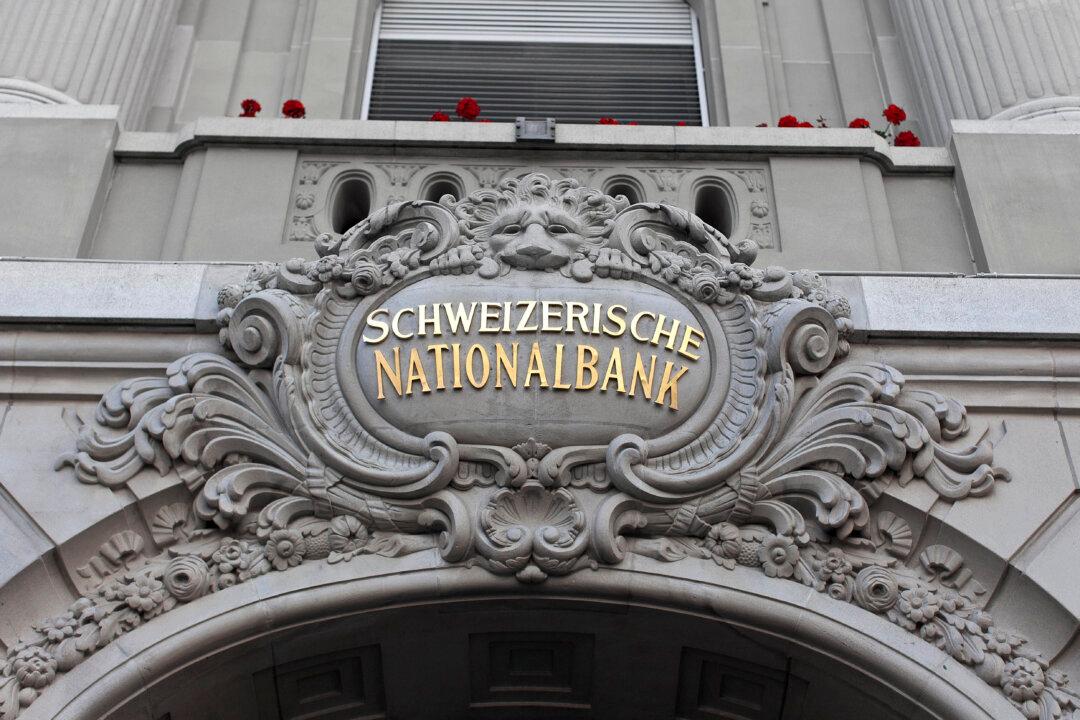The Swiss National Bank (SNB) raised its policy interest rate on June 16 for the first time in 15 years as it attempts to fight off inflation. The increase takes effect on June 17.
“The SNB is tightening its monetary policy and is raising the SNB policy rate and the interest rate on sight deposits at the SNB by half a percentage point to −0.25 percent to counter increased inflationary pressure. The tighter monetary policy is aimed at preventing inflation from spreading more broadly to goods and services in Switzerland,” the bank said in a June 16 statement.





